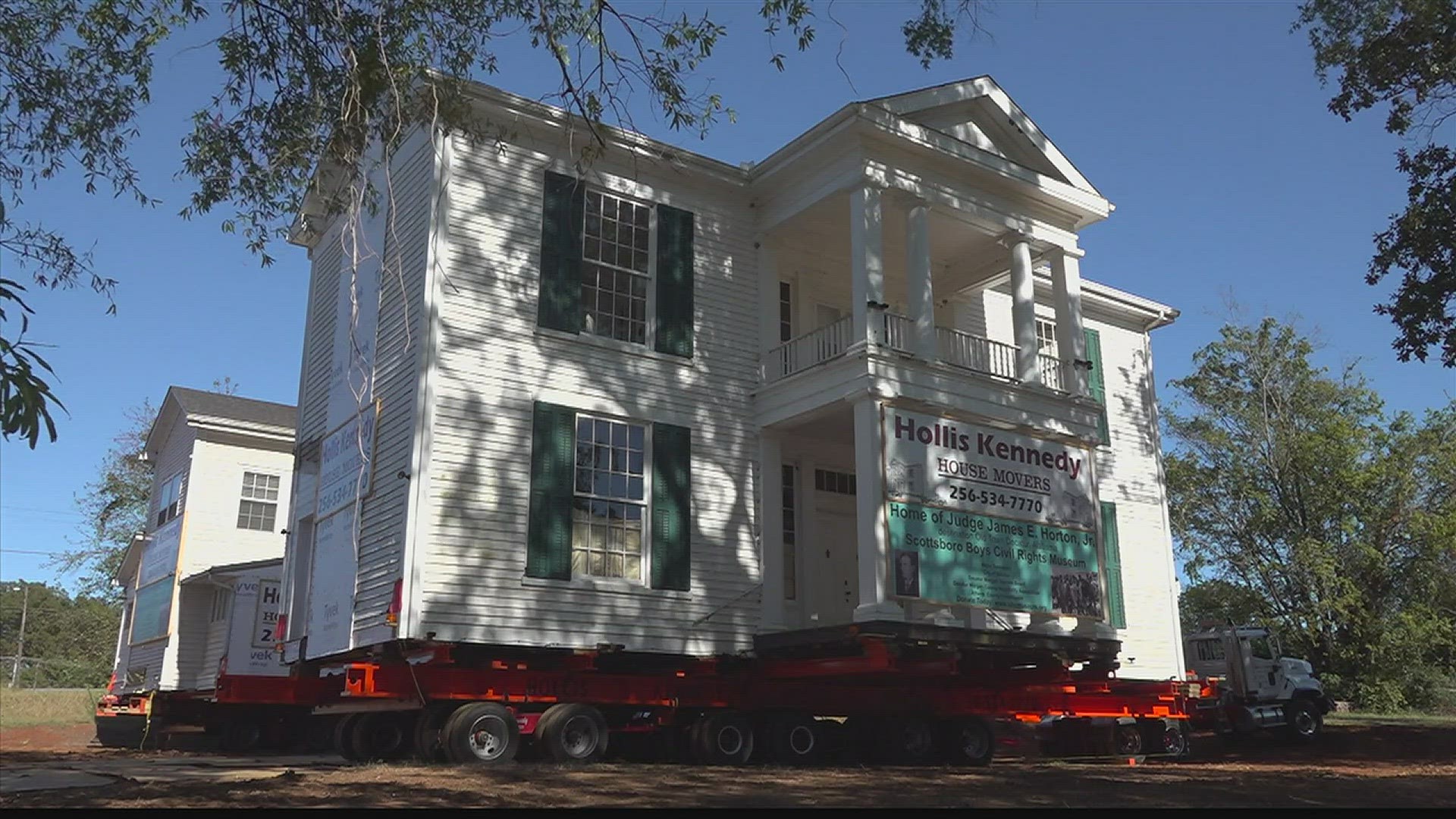DECATUR, Ala. — After a weekend of detours for motorists and a painstaking moving process, the former home of Judge James Horton, famous for his role in overturning the death penalty verdict of the Scottsboro Boys in the early 1930s, is now in its new location in Decatur.
The story of why the house was moved is somewhat occluded in the annals of local history - something Frances Tate wishes to rectify. Tate, an artist and founder of Celebrating Early Old Town with Art, has made it her mission to share some of the history that helped fuel the rise of the Civil Rights Movement, like the trial of the Scottsboro Boys.
Nine Black youths were falsely accused of raping two white women aboard a train near Scottsboro.
"They were in Scottsboro for 12 days," Tate explained. "They were tried and convicted, and they were going to lynch them - that's how they got moved to Decatur. Two and a half, three years of trials happened here."
Tate decided to take the already standing foundation of Old Town Decatur and build off it, creating a civil rights museum. The project began with the home Ruby Bates, one of the accusers, lodged in during the retrials.
"We are renovating that house now, then we're going to build a multimillion-dollar museum adjacent to it that will connect to the two together," Tate said.
The Horton home, until recently located in Greenbrier in Limestone County, is important to the Scottsboro Boys story because Judge James Horton was the presiding judge in the Decatur trials. His decision changed the course of civil rights history.
"His career was over," Tate added. "In the 1930s, he had to do the right thing [but] he paid for it. But his legacy will live on because he did the right thing."
Once the idea was born to bring the house to the Decatur museum site, it took the help of many people - and $1.2 million - to make it a reality. Today, the two pieces of the home, carted in on trucks, await their new foundation.
"Judge Horton's house is going to become a legal learning center," Tate said, "a partnership with the Bar Association in the colleges and universities." Tate foresees mock trials and discussions of legal ethics, history, and related topics which will help people learn from history.
"I want the kids, the adults, to be so impressed and motivated that they are willing to go out into this world and make a change," she said.

